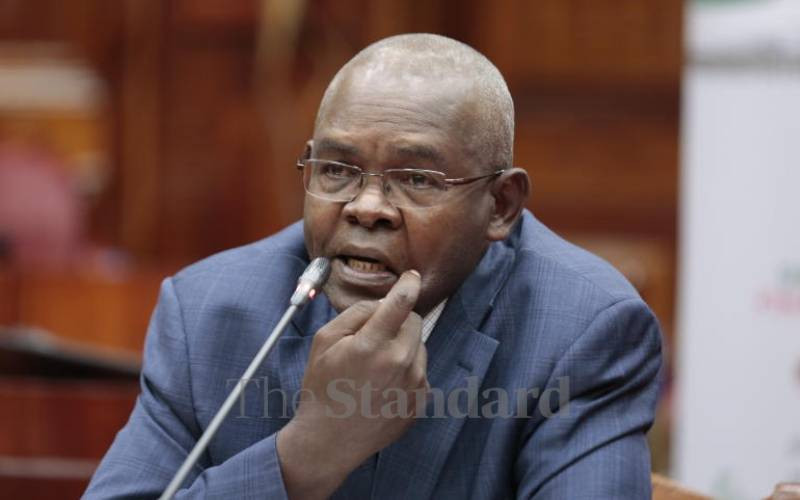Kenya has ruled out issuing a new Eurobond to refinance the $2 billion (Sh296 billion) Eurobond that is just seven months away from maturing in June next year.
The government now says the global credit market conditions are not conducive for the issuance.
Central Bank of Kenya (CBK) Governor Kamau Thugge says the government is instead seeking to build a war chest for repaying the loan by borrowing from multilateral lenders such as the World Bank, the International Monetary Fund (IMF), and regional lenders, including the African Export-Import Bank (Afreximbank).
This is after worsening market conditions caused yields to surge in international markets, shutting the door for a fresh Eurobond.
The announcement comes amid a potential full-blown crisis in June next year when the 10-year Eurobond is due for repayment.
Yields on the country’s 10-year bond maturing in 2024 have risen sharply and continue to spike amid the Russia-Ukraine conflict and interest rate hikes by major central banks, including those in the US and the UK, signalling higher repayment costs.
Global rating agencies, including Fitch, have also downgraded Kenya’s credit rating outlook, dimming the country’s chances of tapping cheap credit on the international market.
“Currently, the credit market conditions are not favourable for refinancing the Eurobond,” Dr Thugge said yesterday during a virtual post-monetary policy committee meeting (MPC) with journalists in Nairobi.
The government recently tapped Citi Bank and South Africa’s Standard Group to advise it on how to deal with the looming Eurobond repayments.
“We have been engaging our lead managers and lead advisors on how to address the issue of the 2024 Eurobond. We have looked at several options. We are talking with multilateral institutions, with the World Bank, and the IMF to see how much additional resources they can make available to us,” Dr Thugge said.
“We are speaking with regional development institutions to see how much additional resources would become available and so we are actually building our war chest so to say to address the issue of the Eurobond.
“We do expect that between now and June, we will progressively reduce the liability of the Eurobond so that by the end of June, if necessary, we will be able to use our international reserves to make sure that there is absolutely no doubt about the government being able to pay for the Eurobond and to take up that liability.”
National Treasury Cabinet Secretary Njuguna Ndung’u recently also confirmed the government is mulling various options.
“The options of settlement include access to the International Capital Market and alternative financing from multilateral and bilateral sources including bank syndications,” Prof Ndung’u told Parliament.
The World Bank recently warned that rising borrowing costs and tougher market conditions could mean that the government will struggle to refinance upcoming maturing debt.
But President William Ruto and top Treasury officials have allayed fears of a possible default.
“The upcoming bullet payment of previous commercial loans (Eurobond repayment due in 2024) has created a surge in refinancing risks as the cost of borrowing in the external financial market rises,” the World Bank said.
Refinancing risk refers to the possibility that a borrower will not be able to replace a debt with suitable new debt at a critical point.
Factors that are beyond the borrower’s control – such as rising interest rates or a shrinking credit market – often play a role in their ability to refinance.
The World Bank’s concerns on Kenya’s refinancing risks had echoed mounting concerns that the unrelenting volatility in the global credit market and a slowdown in economic growth threatened to increase pressure on Kenya’s ability to refinance its maturing debt.
“Kenya’s Eurobond yields have been rising as international financial markets remain tight,” the World Bank said.
The global lender’s view, however, bucked the view of other global lenders such as the IMF and the African Development Bank, which say Kenya will not have difficulties honouring the looming maturing debt.
















%20(2)%20(1).jpg)


Discussion about this post